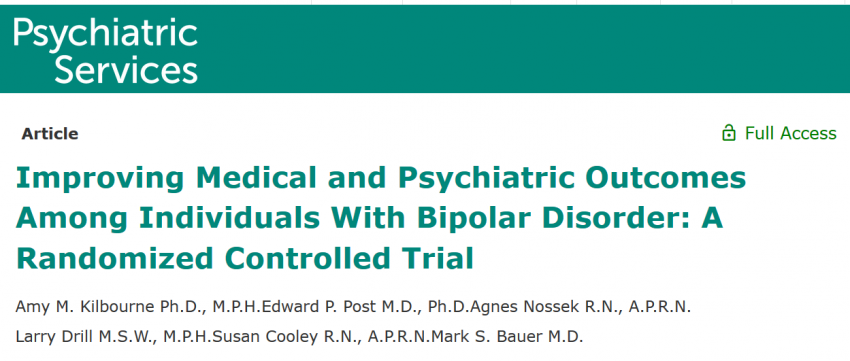A randomized controlled trial that was published in 2008. [1]
Persons with bipolar disorder cardiovascular disease were recruited from a large Department of Veterans Affairs mental health facility and randomly assigned to be managed according to the bipolar disorder medical care model (BCM) or usual care. BCM care consisted of four self-management sessions on bipolar disorder symptom control strategies, education and behavioural change related to cardiovascular disease risk factors, and promotion of provider engagement. Primary outcomes were physical and mental health-related quality of life; secondary outcomes included functioning and bipolar symptoms. 58 persons participated. 27 received BCM care, and 31 received usual care. Significant differences were observed between the two groups in change in scores from baseline to six months for the 12-Item Short-Form Health Survey (SF-12) subscale for physical health (t=2.01, df=173, p=.04), indicating that the usual care group experienced a decline in physical health over the study period. Change in SF-12 scores also indicated that compared with the usual care group, the BCM group showed improvements in mental health-related quality of life over the six-month study period; however, this finding was not significant.
The authors conclude that, compared with usual care, BCM care may have slowed the decline in physical health-related quality of life.
1 Kilbourne AM, Post EP, Nossek A, et al. Improving Medical and Psychiatric Outcomes Among Individuals With Bipolar Disorder: A Randomized Controlled Trial. Psychiatr Serv 2008;59:760–8. doi:10.1176/ps.2008.59.7.760


